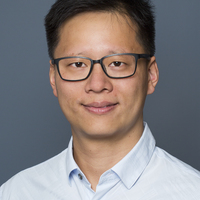
Yujie Zhu
As an anthropologist and critical heritage scholar, my research examines the cultural politics of the past—how memory, heritage, and identity are shaped, contested, and mobilised in contemporary societies. With a primary regional focus on East Asia, I investigate the role of heritage in social transformation, conflict, and knowledge transmission, particularly in contexts marked by postcolonial legacies, rapid development, and contested histories. My work explores how tourism, museums, and memory spaces serve as arenas for political negotiation and cultural meaning-making, addressing themes such as heritage tourism, the politics of remembrance and forgetting, and the interplay between heritage, power, and peace-building.
I am the author of 5 books, (co)editor of 4 edited volumes and 4 special issues, and have published over 60 peer-reviewed journal articles, book chapters, and policy reports. Recent books include Making Places Sacred (Cambridge, 2025, co-authored with Matt Tomlinson), China's Heritage through History (Routledge, 2024), Heritage Tourism (Cambridge, 2021), Heritage Politics in China (Routledge, 2020, co-authored with Christina Maags), and Heritage Romantic Consumption in China (Amsterdam, 2018).
My research has been supported by the Australian Research Council (ARC), UNESCO, the German Research Foundation (DFG), the European Union, and the Andrew W. Mellon Foundation, among others. I am currently Chief Investigator of the ARC Discovery project Memory Politics in Modern China and Partner Investigator on the Global Humanities Institute project Indigenous Mobilities, Tourism, and Racial Capitalism.
I have held leadership roles in major international scholarly communities, including as Vice President of the Association of Critical Heritage Studies (2014–2020) and Deputy Chair of the IUAES Anthropology of Tourism Committee (2013–2021). I serve on the editorial boards of Current Anthropology, Cultural Geographies, Journal of Anthropological Research, and Journal of Heritage Tourism, and am an Expert Member of the ICH Committee of ICOMOS.
Address: Australian National University
Australia
I am the author of 5 books, (co)editor of 4 edited volumes and 4 special issues, and have published over 60 peer-reviewed journal articles, book chapters, and policy reports. Recent books include Making Places Sacred (Cambridge, 2025, co-authored with Matt Tomlinson), China's Heritage through History (Routledge, 2024), Heritage Tourism (Cambridge, 2021), Heritage Politics in China (Routledge, 2020, co-authored with Christina Maags), and Heritage Romantic Consumption in China (Amsterdam, 2018).
My research has been supported by the Australian Research Council (ARC), UNESCO, the German Research Foundation (DFG), the European Union, and the Andrew W. Mellon Foundation, among others. I am currently Chief Investigator of the ARC Discovery project Memory Politics in Modern China and Partner Investigator on the Global Humanities Institute project Indigenous Mobilities, Tourism, and Racial Capitalism.
I have held leadership roles in major international scholarly communities, including as Vice President of the Association of Critical Heritage Studies (2014–2020) and Deputy Chair of the IUAES Anthropology of Tourism Committee (2013–2021). I serve on the editorial boards of Current Anthropology, Cultural Geographies, Journal of Anthropological Research, and Journal of Heritage Tourism, and am an Expert Member of the ICH Committee of ICOMOS.
Address: Australian National University
Australia
less
InterestsView All (21)
Uploads
Videos by Yujie Zhu
This lecture is part of 2020 Online Lecture Series: Understanding World Heritage Interpretation and Presentation organised by International Centre for WH Interpretation & Presentation.
Journal articles by Yujie Zhu
Design/methodology/approach-This paper examines the processes of difficult heritage interpretation at the Memorial Hall of the Nanjing Massacre over the past 30 years, and examines the resulting political implications.
Findings-Aligning with contemporary national social and political agendas, heritage interpretation at the Memorial Hall actively serves as an authorised educational tool. Despite the hot interpretation techniques used to stimulate the emotional impact of visitor experiences, this particular traumatic past has been utilised in nation building practices that legitimise specific histories and form a national image on an international stage.
Research limitations/implications-Heritage interpretation of difficult history will benefit from open dialogue and assessment of the past from multiple perspectives. This requires all stakeholders to work together to develop interpretation strategies that acknowledge and prioritise the needs of post-conflict societies. Without this form of open dialogue and reflection, the official claims of heritage interpretation achieving reconciliation between conflicted peoples remain superficial.
Originality/value-This study offers a novel contribution to the discussion of heritage interpretation. The results shed light on the cultural processes surrounding state interpretation of traumatic pasts for specific political uses. The study suggests ways in which heritage sectors and authorities can achieve social goals, such as public education, reconciliation and peacebuilding, through such processes of heritage interpretation.